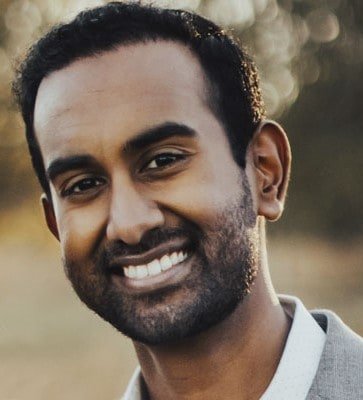Dr. Eshwar Arasu says that in a competitive world, staying engaged in educational opportunities and incorporating new technologies can promote long term success.
This adage — originated by English author Thomas Fuller and popularized by the late broadcaster Vin Scully — ought to serve as a clinical mantra for endodontists. It sounds the warning of complacency. More importantly, it beckons us to engage in lifelong learning at the service of our patients. This fall issue of Endodontic Practice US presents some of the many exciting clinical advances in instrumentation, imaging, and disinfection.
The onus is on endodontists to evaluate the merits of new technologies and adopt them when appropriate. However, there is inertia to this adoption. For endodontic newcomers and owners of fledgling practices, costs may manifest as time away to undergo training or marginal squeeze due to increases in overhead. For seasoned clinicians, these very issues can surface as a nagging question: Why should I introduce change and expense to my practice when I already have efficient treatment success?
To answer that question, we first have to challenge its premise. Without exhaustive posttreatment recalls of patients, many endodontists may be overestimating their own success. The endodontic triad of shaping, cleaning, and filling has value when contextualized to biologic principles and outcomes-based research. Reported success rates for nonsurgical and microsurgical endodontic treatment widely range from 70% to over 95% across both short- and long-term outcomes studies. This variation in reported success should not discourage us from trusting the anvil of research upon which our profession has been forged. Rather, it should prompt discussions of case selection, factors underlying modes of endodontic failure, and the value-add of new technologic adjuncts to treatment outcomes.
The financial considerations of incorporating new technologies in a clinical practice are not negligible. In these challenging economic times, endodontists as small business owners are beholden to their staff, associates, and families to maintain practice solvency. However, investments in new clinical devices can be highlighted to patients who are increasingly reliant on websites and online reviews to optimize their care. And in many markets, they are willing to pay the premium associated with cutting-edge technology.
There is no shortage of competing files, CBCT machines, and irrigant-delivery vehicles. So, while endodontists’ adaptability to new trends is a boon, they face a challenge in vetting the many technologic options before them. Continuing education by review of available evidence is one approach to navigate the maze. Discussion with colleagues represents another.
For those who practice in an endodontic group, comparing notes on cases and techniques can be as illuminating as they were in residency. Clinicians in a solo practice need not be isolated from educational engagement — study groups, endodontic forums, and annual meetings are effective avenues to continued learning. Lastly, endodontists should be emboldened to educate their referring doctors while marketing their practices. Assembling presentations compel endodontists to self-assess whether their practices meet standards of care and exceed their patients’ expectations for comfortable, modern treatment.
Dr. Arasu and his colleagues always strive for long-term success. Read the story of how they persevered and grew after a tornado literally shook up their office. https://endopracticeus.com/cumberland-endodontics-coming-out-stronger-a-practice-that-wouldnt-stop/
Stay Relevant With Endodontic Practice US
Join our email list for CE courses and webinars, articles and more..

 Eshwar Arasu, DMD, MSD, is a private practice endodontist in Nashville, Tennessee. Dr. Arasu obtained his dental degree from the Harvard School of Dental Medicine and completed his postdoctoral endodontic training through the residency program at Virginia Commonwealth University. He was awarded a Master of Science in Dentistry for his thesis on the volumetric analysis of surgically treated endodontic lesions via cone beam computed tomography. Dr. Arasu is a Diplomate of the American Board of Endodontics. He may be reached online at
Eshwar Arasu, DMD, MSD, is a private practice endodontist in Nashville, Tennessee. Dr. Arasu obtained his dental degree from the Harvard School of Dental Medicine and completed his postdoctoral endodontic training through the residency program at Virginia Commonwealth University. He was awarded a Master of Science in Dentistry for his thesis on the volumetric analysis of surgically treated endodontic lesions via cone beam computed tomography. Dr. Arasu is a Diplomate of the American Board of Endodontics. He may be reached online at 
